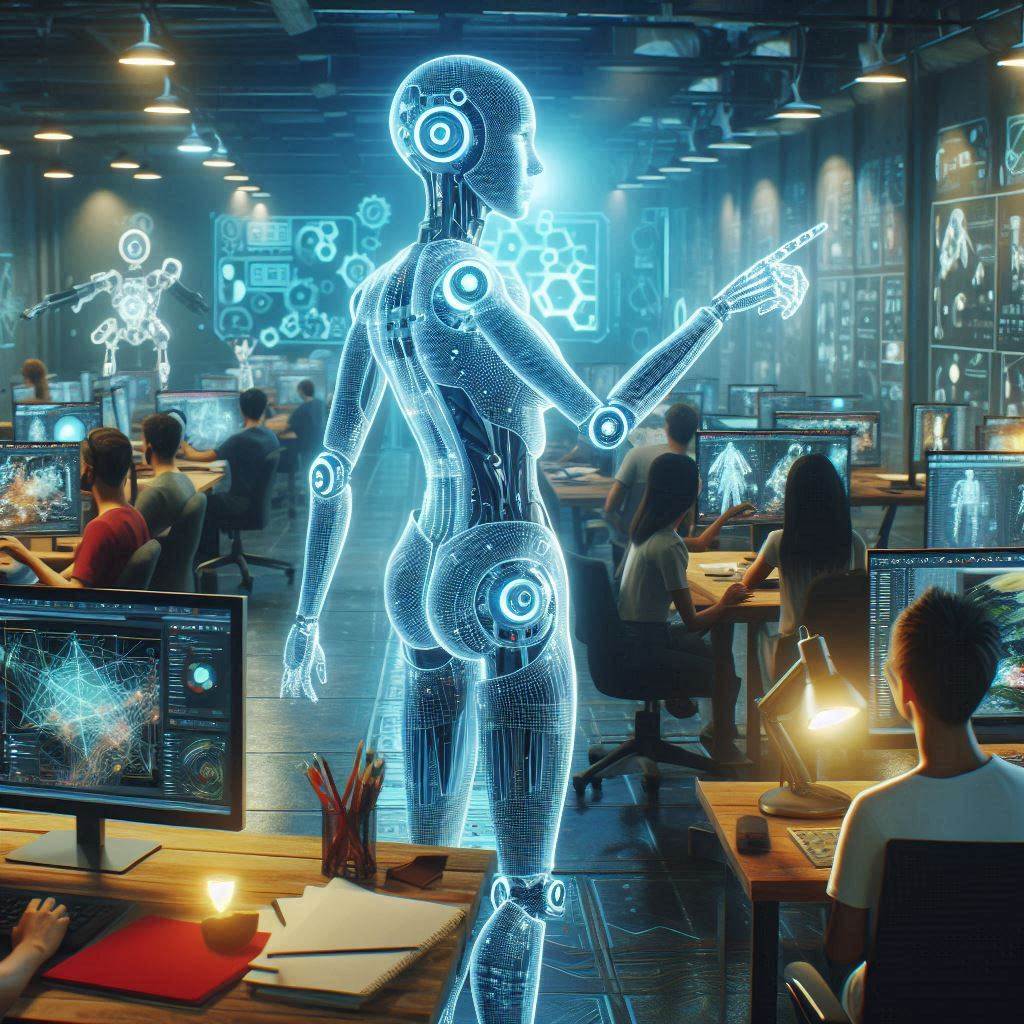
Andrew Maximov, a veteran in the gaming industry with 12 years of experience, is astounded by the immense expenditure involved in creating blockbuster titles.
As he recalls his time at PlayStation, he highlights the staggering costs, with production alone reaching $220 million for a single game, not to mention doubling that amount for marketing, resulting in half a billion dollars per game—an unsustainable figure for most companies.
Maximov envisions artificial intelligence (AI) as a vital tool in curbing the escalating costs of game development while saving crucial time for video game designers by automating repetitive tasks.
His company, Promethean AI, offers developers a suite of tools for crafting virtual worlds, aiming to disrupt the traditional game production process by empowering artists to be the architects of their own automation.
Human creativity remains central to the production process, with AI serving as a collaborator, enabling artists to unleash their imagination.
Maximov explains how their system allows artists to solicit feedback from AI, generating relevant examples from their concept art library, thereby streamlining the creative process.
He recounts instances where AI generated unexpected ideas, like placing a doughnut on every desk in a police station or consistently placing a sock under a coffee table in an apartment, highlighting the quirky yet logical outcomes of AI-driven automation.
Californian firm Inworld harnesses AI to enhance realism in game worlds and imbue characters with emotional depth, ushering in a new era of storytelling and gameplay possibilities.
CEO Kylan Gibbs emphasizes how AI empowers developers to dream bigger by endowing virtual characters with advanced cognitive capabilities, transforming the gaming landscape.
Nick Walton, CEO of Latitude.io, underscores AI's potential to personalize gaming experiences, envisioning dynamic and adaptive worlds where players forge unique connections with characters and communities.
His firm's AI Dungeon game epitomizes this concept, allowing players to create their own stories within dynamically evolving worlds, offering unprecedented freedom and replayability.
Despite AI's transformative potential, concerns arise about its impact on human roles within the industry.
Andrew Wilson, CEO of EA, acknowledges that AI could affect around 60% of the game publisher's development processes, leading to recent layoffs. However, he sees AI as augmenting human creativity rather than replacing it.
Maximov echoes this sentiment, emphasizing the importance of restoring "creative dignity" to developers by freeing them from repetitive tasks and empowering them to pursue their artistic vision.
Gibbs reinforces the idea of AI augmenting human creativity, stressing the need for deep and thoughtful human inputs to imbue AI-driven characters with rich backstories and personalities.
Ultimately, the integration of AI into game development promises to revolutionize the industry, enhancing creativity, efficiency, and player experiences while preserving the essential role of human ingenuity.